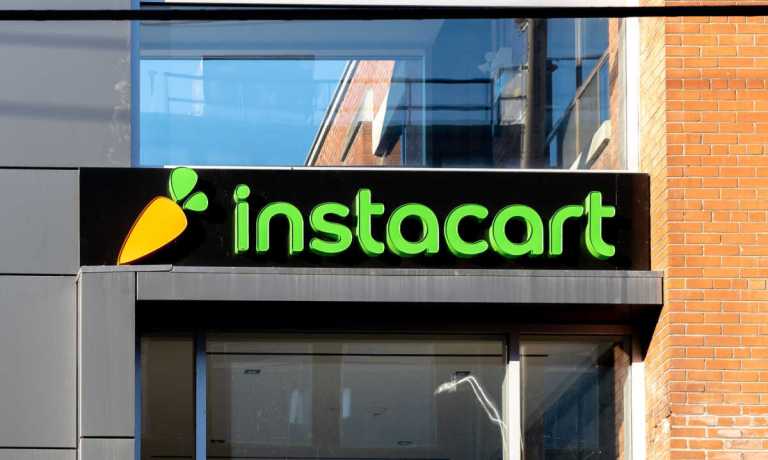Instacart Expands Smart Carts as Grocers Grapple With Reliance on the Aggregator

As grocers look for ways to meet consumers’ demand for lower-friction checkout options, many are turning to smart carts, and those that rely on Instacart for this technology may find themselves in a tricky spot down the line.
Instacart announced Thursday (June 22) that two Wakefern-owned grocers — a ShopRite location and a Fairway Market store — are launching Instacart’s Caper Cart smart shopping carts, which enable consumers to ring up items as they move through the store and check out from on-cart screens.
“Our goal is to offer our customers the best possible shopping experience, and the new, enhanced Caper Cart streamlines the shopping and checkout process while offering new opportunities to engage with customers at the point of purchase,” Wakefern Chief Information Officer Cheryl Williams said in a statement.
Technologies such as smart carts that enable consumers to scan items and pay as they go can improve the consumers’ experience. Data from PYMNTS’ study “Big Retail’s Innovation Mandate: Convenience and Personalization,” created in collaboration with ACI Worldwide, revealed that 40% of grocers said they think consumers would be very or extremely likely to switch merchants if not offered the ability to scan products and pay without standing in line.
Plus, findings cited in the February edition of PYMNTS’ Retail Tracker® series, “Innovating the Retail Checkout Experience,” created in collaboration with LS Retail, revealed that 60% of retail customers prefer self-checkout to interacting with a cashier.
However, relying on Instacart to offer these capabilities can come with significant drawbacks for grocers, increasing their dependence on the third-party aggregator and relinquishing control of the transaction. Many supermarkets and retailers, consequently, are looking for alternatives, partnering with technology providers that do not pose the same existential threat to grocers.
For instance, A2Z Smart Technologies Corp.’s flagship smart cart product, Cust2Mate, announced a partnership Wednesday (June 21) with retail technology company IR2S meant to roll out 30,000 carts by the end of 2025 to French retailers. These carts, as Cust2Mate CEO Guy Mordoch told PYMNTS, integrate with the retailer’s point of sale (POS) and customer relationship management (CRM) platforms.
Mordoch noted that, down the line, Cust2Mate will be able to generate “insights that are driven from data,” as well as to run “advertisements and retail media on the cart” based on that data, enabling retailers to leverage their analytics to drive sales and loyalty.
These kinds of partnerships are part of a larger, overarching effort on stores’ parts to find ways to meet consumers’ tech expectations without depending on third-party marketplaces, which can seize consumers’ loyalty and charge steep commissions.
“In online grocery today, the biggest shift is from independent retailers relying on others in a way that is not sustainable and not profitable to independent retailers, taking the reins and taking control and investing in this channel because of all the value that it can create,” Jeff Anders, co-founder and CEO of eGrocery technology company Grocerist, said in a February interview with PYMNTS.